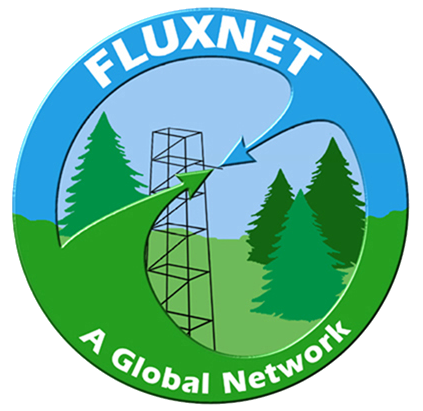With the rapid expansion of the flux community and the upcoming FLUXNET Data System Initiative, hundreds of new global sites will soon contribute eddy covariance (EC) data to community flux networks. As community interest in using flux data for validating and parameterizing land surface models grows, there remains a steep learning curve for both flux and modeling communities due to the technical expertise required for members of either scientific community. The use of EC data in modeling requires an understanding of the models’ core components and assumptions, as well as an understanding of EC data limitations and processing, where the utility of EC data in modeling differs significantly depending on the type of model being used and the scale that it operates at. Insufficient understanding of either component has the potential to hinder scientific advancement and can even lead to misinterpretation of findings.
To address these challenges, the FLUXNET Early Career Network (FLUXNET-ECN) is organizing “Bridging the Gap: Flux Data Meets Land Surface Models”, a three-day in- person workshop aimed at early career scientists interested in integrating flux data with ecosystem models. The workshop will provide a combination of fundamental presentations, hands-on tutorials, and expert-led discussions to facilitate engagement between the flux and modeling communities. Recorded talks and tutorials will be made publicly available after the workshop.
Workshop Highlights:
- Introduction to Flux Data Processing: Invited speakers will discuss the basics of flux
data processing and will introduce the FLUXNET Data System Initiative. Participants will
work through a ½-day hands-on tutorial session covering the basics of flux data
processing using REddyproc, including gap filling and flux partitioning. This will provide
an essential background for understanding flux data in a modeling context. - Introduction to Land Surface Modeling: Invited speakers will discuss the basics of
land surface modeling (with a focus on the DOE’s Energy Exascale Earth System model
(E3SM) Land Model (ELM)), ELM model structure, and the steps involved in running a
model simulation. - Modeling & Flux Data Comparison: Participants will work through a 1.5-day hands-on
tutorial on running ELM in Docker and comparing model simulations to flux data for
validation. - Community Engagement: The workshop will provide opportunities for participants to
develop their skill sets as researchers, interact with experts, share their own research
during a happy hour poster session, and build collaborations between the flux and
modeling communities.
By offering an accessible introduction to flux data-model integration, this workshop aims to equip participants with the tools and knowledge needed to effectively use EC data in ecosystem modeling while fostering interdisciplinary collaboration.
To apply, please fill out this application form by June 8th, 2025. Please contact Bailey Murphy ([email protected]) or Theresia Yazbeck ([email protected]) with any questions 🙂
Dates: August 6-8th, 2025
Location: Residence Inn Berkeley, 2121 Center Street Berkeley, CA 94704
Organizing committee and funding: Bailey Murphy (Oak Ridge National Laboratory), Theresia Yazbeck (Max Planck Institute for Biogeochemistry), Youmi Oh (NOAA Global Monitoring Laboratory), Kunxiaojia (Tammy) Yuan (Lawrence Berkeley National Laboratory), Roel Ruzol (Howland Research Forest, University of Maine), Karem Meza Capcha (University of California Davis), Md (Mo) Shamsuzzaman (South East Technological University, Ireland), Yujie Liu (Northern Arizona University), Brian Wang (Lawrence Berkeley National Laboratory), and Sreenath Paleri (National Ecological Observatory Network). Funding support for this workshop is provided by the NSF AccelNet Program, Award #2113978. Additional funding support for
Bailey Murphy is provided by the Next Generation Ecosystem Experiment Arctic (NGEE Arctic) project, funded by the Office of Biological and Environmental Research in the US Department of Energy’s Office of Science.
Participants: The workshop will be attended by a group of ~30 early career scientists. Basic familiarity with interpreted languages like R or Python is required, but applicants do not need advanced programming skills or prior experience with flux data processing or land surface modeling.
Participant support: Funds are available to support lodging for a select group of workshop
participants.
